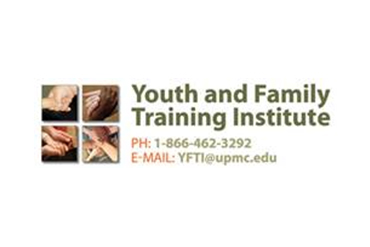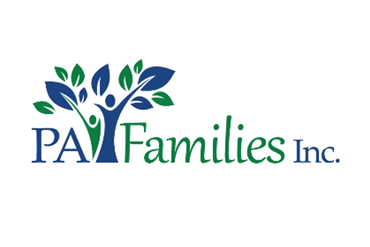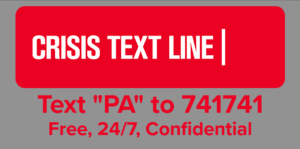COACH APPROACH ADAPTIVE LEADERSHIP WEBINARS
As part of the continuing education for those individuals who have completed the Coach Approach to Adaptive Leadership webinars and community of practice calls are held on a regular basis to provide information to refresh knowledge on The Coach Approach as well as provide new material. This page provides digital copies of the webinars and community of practice calls.
Coach Approach to Adaptive Leadership Webinar Series
In the webinars, we will build on the Coach Approach mindset and skillset to offer additional skills and strategies to keep you in practice.
Coach Approach to Adaptive Leadership Webinar #1 "Coach Approach Refresher and Conversation" from March 18, 2019
This webinar recorded on March 18, 2019, is a refresher to the Coach Approach to Adaptive Leadership. This webinar reviews the fundamentals of coaching and can be used as a skills reminder or to have a basic understanding of the Coach Approach to Adaptive Leadership.
This group webinar was provided by the Coach Approach Partners and the PA Care Partnership.
PDF Presentation: www.pacarepartnership.org/uploads/1_A_Quick_Refresh_On_The_Coach_Approach_Webinar_for_PA.pdf
Coach Approach to Adaptive Leadership Webinar #2 "Asking Powerful Questions" from April 15, 2019
This webinar recorded on April 15, 2019, focuses on the Coach Approach to Adaptive Leadership and how asking questions that are both powerful and meaning full can improve and enhance meaningful conversations and be the catalyst for those seeking answers, to answer their own questions. Through the webinar, individuals can build on the Coach Approach mindset and skillset to offer additional skills and strategies to keep you in practice.
This group webinar provided by the Coach Approach Partners and the PA Care Partnership.
PDF Presentation: https://www.pacarepartnership.org/uploads/Asking_Good_Questions_Webinar_4.12.19.pptx
Coach Approach to Adaptive Leadership Webinar #3 "Coach Approach to Difficult Conversations" from June 2, 2019
This webinar recorded on June 3, 2019, focuses on our mindset as coaches when we are approached with difficult and challenging questions. Through the webinar, we learn how to shift difficult conversations into learning conversations, while building the Coach Approach mindset and skillset.
This group webinar provided by the Coach Approach Partners and the PA Care Partnership.
PDF Presentation: https://www.pacarepartnership.org/uploads/WEBINAR_3_Coach_Approach_t_o_Difficult_Conversations_June_FINAL.pdf
Coach Approach to Adaptive Leadership Webinar #4 "Request, Commitments, and Holding Accountability" from July 15, 2019
This webinar recorded on July 15, 2019, focuses on changing the way we make requests, offers, and commitments into proactive and action-oriented steps to provide others with clear and understandable actions for them to achieve.
Coach Approach to Requests, Commitments, and Holding Accountability
PDF Presentation: https://www.pacarepartnership.org/uploads/Webinar_4_Requests_Offers_and_Commitments.pdf
The Big Rocks of Life handout: https://www.pacarepartnership.org/uploads/Big_Rocks_Covey.pdf
Coach Approach to Adaptive Leadership Webinar #5 "The Coach Approach for the Holidays" from December 17, 2019
This webinar recorded on December 17, 2019, focuses on how to sustain The Coach Approach at home during a busy time of year. We discuss how the holiday season can cause communication breakdowns and identify strategies for a happier holiday.
This group webinar provided by the Coach Approach Partners and the PA Care Partnership.
PDF Presentation: https://www.pacarepartnership.org/uploads/Coach_Approach_for_the_Holidays.pdf
Coach Approach to Adaptive Leadership Webinar #6 “The Coach Approach - A Deep Dive Into The Ladder of Inference”
This webinar provides the viewer with a deeper understanding of Chris Argyris model: The Ladder of Inference. The Ladder of Inference illustrates our mental process of filtering and interpreting data from our own biases and how that impacts what and how we see the world around us. We have found that this model is helpful for allowing us with The Coach Approach to further explore our complex situations and discover opportunities for new possibilities.
PDF Presentation: https://www.pacarepartnership.org/uploads/Ladder_of_Inference_PDF.pdf
Learn about the Latter of Inference from Trevor Maber in this YouTube video From Ted-Ed- "Rethinking Thinking"-Every day, we meet people and process our interactions--making inferences and developing beliefs about the world around us. In this lesson, Trevor Maber introduces us to the idea of a ladder of inference and a process for rethinking the way we interact.
Coach Approach to Adaptive Leadership Webinar 2020-03 “A Deeper Dive Into Questioning”
In this webinar, you will learn the different ways that good Coach Approach questions can help a person learn more about their situation and develop their own solutions. We will review what we already know about what makes a good question, different types of Coach Approach questions, and how to use them effectively for a natural, flowing conversation. While there is no such thing as a “right” question, this skill will help you use different tools to help a person unlock themselves from their own situation.
PDF Presentation: https://www.pacarepartnership.org/uploads/Refining_Our_Questions_Webinar_(Full_Page)_06252020.pdf
Coach Approach to Adaptive Leadership Webinar 2020-04 “The Coach Approach Review – A Deep Dive Into Feeling Safe and Seen”
In this webinar, you will get a deeper understanding of feeling and Safe and Seen and how our words and interactions with others can be seen as a perceived threat. This webinar will detail how our interactions affect others on a neurological level. We want to decrease threats and increase safety and security so that we can have healthy and stable relationships to improve outcomes and self-advocacy. Finally, there will be an opportunity to share stories and discuss how to take this knowledge forward.
PDF Presentation: https://www.pacarepartnership.org/uploads/A_Deep_Dive_Into_Felling_Safe_and_Seen_Webinar_for_PA_08172020.1.pdf
Coach Approach to Adaptive Leadership “The Coach Approach Review – Coaching to Create Accountability in Others” Webinar 2020-05
Coaching for accountability can be challenging and often misunderstood. In this webinar, we will review accountability in the Coach Approach any why we must ask those we work with commit to accountability for their plans and ideas. Putting purposefulness in an uncommitted world drives us to make change. This webinar will cover why we asked for the commitment of accountability, why commitment is critical, asking questions to understand what they need to commit, making requests for the commitment, and what we must do as coaches to assure accountability. Our objective is for you to leave this webinar with a rich understanding of the value and the need for accountability.
PDF Presentation: https://www.pacarepartnership.org/uploads/Coaching_to_Create_Accountablity_in_Others_10.22.2020.pdf
Coach Approach to Adaptive Leadership The Coach Approach Over The Holidays Refill Your Bucket” Webinar 2020-06
Is your “Energy Bucket” getting low? What do you need to do to refill you, “Bucket”? In this interactive webinar, we discuss how refilling your bucket can create the change you and your system(s). Knowing what drains and fills our “Energy Bucket” can help you reshape your thinking allowing for something new to emerge while producing self-care and reducing stress. We will discuss as a group how to reframe and rethink what is draining us to contemplate if this is also what may fill our energy. You will leave this training with an understanding of how to use the bucket exercise and how you can use this with those you work with.
PDF Presentation: https://www.pacarepartnership.org/uploads/Refilling_My_Bucket_PDF.pdf
The Coach Approach Model as a Trauma-Sensitive Method of Supervision and Engagement
Presented on March 14, 2022 by Mary Garrett Itin and Mark Durgin
Coaching is a powerful tool for improving leadership in youth, family, and systems interactions, building more robust and effective communication while empowering youth and family voices at all levels. The Coach Approach to Adaptive Leadership (CAAL) training was developed to strengthen the way we work with and engage one another, both professionally and personally. The CAAL philosophical belief is that all individuals are capable and able to solve their challenges and emphasizes that the leader/coach is not the expert or the judge but creates a partnership for learning and change.
This training connects coaching as a daily practice to respond to complexity in times of uncertainty while connecting to trauma-informed philosophies. As systems are becoming more trauma-informed, they must model trauma-informed behaviors with all they work with. Using the CAAL, we are present to have natural and empowering trauma-informed interactions.
Coach Approach to Psychological Safety Mental Models and Values
Presented on July 11, 2022 by Anne Katona Linn and Mark Durgin
This training connects coaching as a daily practice to Google's Project Aristotle and Psychological Safety and how we respond and interact in our work and personal lives. This training looks at how our values and mental models relate to how we can build environments that are psychologically safe.
Learning Objectives:
- Overview of the Coach Approach Skills, Mindset, and Core Principles.
- Participants will identify their core values and how they impact their work and relationships.
- Understand how our mental models determine how we see the world and what we can do to manage them.
The Coach Approach Model Changing the Conversation and Being Trauma-Informed
Presented at the National Federation of Families Conference on November 4, 2021.
A National Federation of Families' 2021 Virtual Conference workshop titled "The Coach Approach Model: Changing the Conversation and Being Trauma-Informed" - presented by Mark Durgin (Pennsylvania Care Partnership), Ellen Kagen (Kagen Leadership Group), Valarie Oulds (Philadelphia Department of Behavioral Health and Intellectual disAbility Services) and Lisa Snitzer (Mental Health Partners).
The Coach Approach to Adaptive Leadership (CAAL) training was developed to strengthen the way we work with and engage one another, both professionally and personally. The CAAL philosophical belief is that all individuals are capable and able to solve their challenges and emphasizes that the leader/coach is not the expert, or the judge, but creates a partnership for learning and change. The CAAL is a cross-system collaboration within Systems of Care (SOC) to support health and human services organizations in building coaching skills to be adaptive leaders. This training connects coaching as a daily practice to respond to complexity in times of uncertainty while connecting to trauma-informed philosophies. As systems are becoming more trauma-informed, they must model trauma-informed behaviors with all they work with. Using the CAAL, we are present to have natural and empowering trauma-informed interactions.
The CAAL curriculum was designed to orient participants to a coaching model, provide opportunities to practice real coaching, and customize the coaching application to the unique needs of each organization. Coaching focuses on skills and abilities to reach targeted outcomes, enhance performance, and develop more profound levels of critical thinking. This training will detail how the Coach Approach is aligned with the System of Care with a shared set of values which includes youth and family-driven; community-based; cultural and linguistic competence; strength-based; multi-system integration; trauma-informed; and quality and outcomes-oriented. We will provide real examples of how this approach has been implemented and can be duplicated in your organization or community. The presentation will detail how and why we are collecting data and how we are using this data to enhance the training. Participants are encouraged to come with an open mind and some challenges they would like to address.
The Coach Approach Empowering Person-Centered Conversation in Families, Family Organizations, and Systems
A National Federation of Families' 2021 Virtual Conference workshop titled "The Coach Approach Model: Changing the Conversation and Being Trauma-Informed" - presented by Mark Durgin (Pennsylvania Care Partnership), Ellen Kagen (Kagen Leadership Group), Valarie Oulds (Philadelphia Department of Behavioral Health and Intellectual disAbility Services), Janice Schutz (Washington State Community Connectors), Adaminah Tankersly and Benita Tillman (Philadelphia Family Voices).
This training will detail how the Coach Approach is aligned with the System of Care with a shared set of values, including youth and family-driven; community-based; cultural and linguistic competence; strength-based; multi-system integration; trauma-informed; and quality/outcomes-oriented. We will provide tangible examples of how this approach has been implemented in the Commonwealth of Pennsylvania, Washington State Community Connectors, a statewide family organization, and how the Philadelphia System of Care implemented this directly with families.
Coach Approach Community of Learning Circle
Individuals who complete the Coach Approach to Adaptive Leadership training are encouraged to join and participate in the Coach Approach to Adaptive Leadership Community of Practice. Our community of practice, hosted by the Coach Approach Partners, invite participants to share their experiences applying the Coach Approach at work and at home. Throughout the calls, participants are invited to share their reflections, challenges, learning, and successes.
Developing a Coaching Culture CAAL Learning Circle
Coach Approach to Adaptive Leadership Learning Circle:
Subject: Developing a Coaching Culture
Recorded: February 2, 2023
Facilitated by Dr. Anne Katona Linn and Mark Durgin, ACC.
This video was developed under grant number 1H79SM084173 from the Substance Abuse and Mental Health Services Administration (SAMHSA), U.S. Department of Health and Human Services (HHS). The views, policies, and opinions expressed are those of the authors and do not necessarily reflect those of SAMHSA or HHS.
PA CRISIS TEXT LINE







